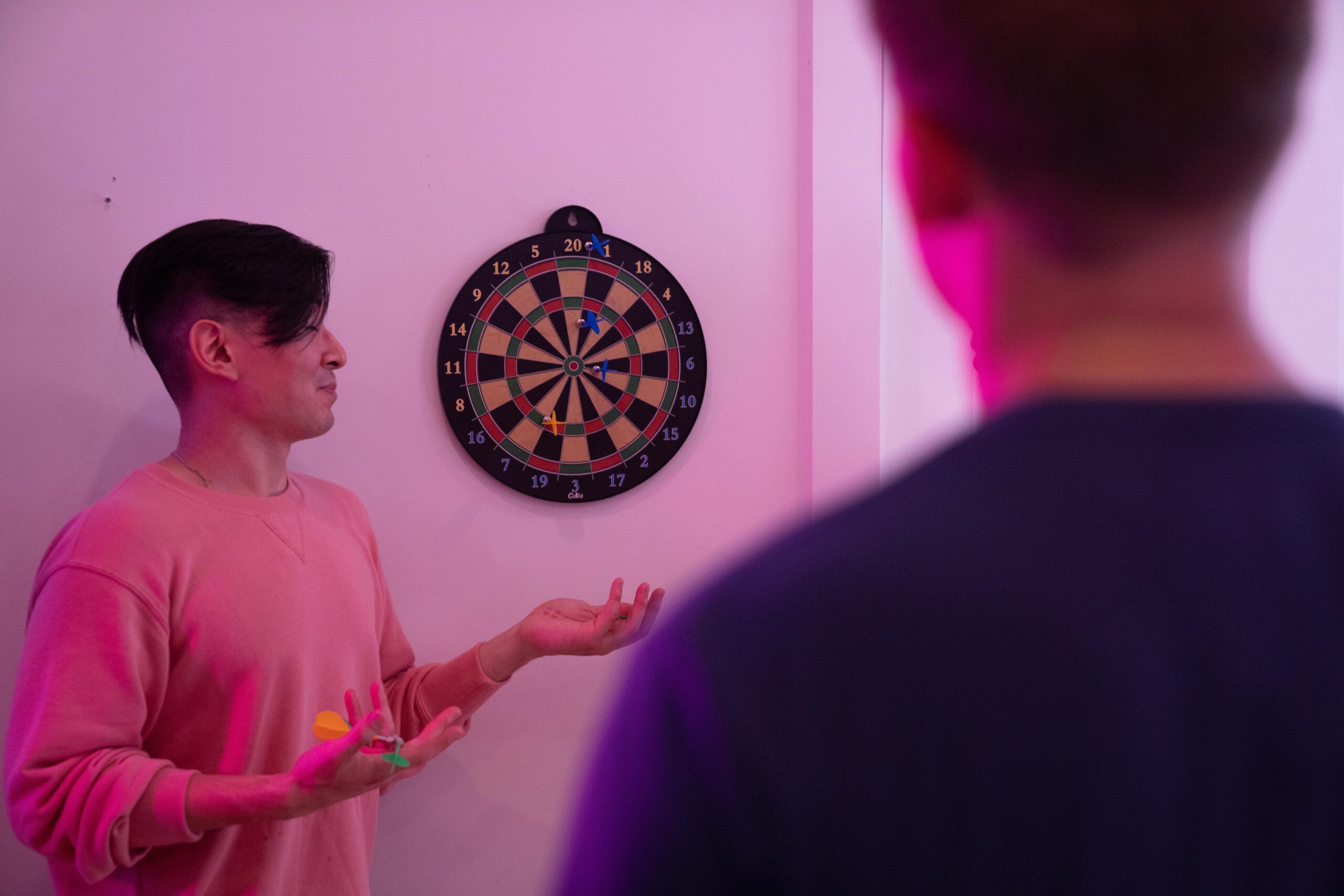A recent survey by YouGov reveals a startling trend among Gen Z, with a staggering 55% reporting heightened stress levels. The study, conducted weekly to gauge the nation’s mood, places Gen Z at the forefront of stress statistics, highlighting the need for innovative solutions to address this growing concern.
As a generation, Gen Z faces a unique set of challenges, from soaring living costs and job insecurity to heightened climate anxiety, according to a study by Deloitte. Born into the digital age, this generation has weathered pandemic restrictions and grappled with the highest university fees in UK history. The cumulative impact of these issues has resulted in a stress epidemic that demands attention and action.
The Guardian have recently reported that Gen Z are more likely to socialise at home than physically with friends. While offering certain benefits, socialising in this way can contribute towards increase feelings of isolation and stress.
Darts Corner’s Managing Director, Craig Heenighan wants to offer a solution to Gen Z who are experiencing these feelings, through playing darts.
“Darts is more than just a sport; it’s a community-focused activity that fosters connections and friendships. Joining the darts community provides an excellent opportunity to step out of the house, try something new, and forge meaningful connections.” says Heenighan.
In recent months, the surge of interest in darts has climbed dramatically, by the success of teenage sensation, Luke Littler at the recent PDC World Championships. It is reported there are now 2 million new enthusiasts, with the same report claiming that darts is now Britain’s favourite sport.
Dr. Sandi Mann of the University of Central Lancashire emphasised the mental health benefits of the sports while speaking to The Independent in January:
“The game provides an outlet for stress relief, which is crucial for maintaining cognitive health. High stress levels can impair cognitive function, so activities that reduce stress are indirectly beneficial to brainpower. Additionally, the social aspect of playing darts can improve emotional wellbeing, contributing to a more focused and agile mind.” She explains.
Professional darts player and firefighter, Alan Soutar, echoes these sentiments, drawing from personal experience after coaching young players at the Angus Darts Academy, in which he founded. Alan ran the academy from 2012 – 2022 and saw over 750 young people come to the academy to train. Soutar attests to the transformative power of darts in managing stress:
“I have witnessed first-hand the difference darts makes to youngster’s lives. The sense of community is unparalleled in the darts world. The words “Darts Family” is always mentioned when talking about bonds and friendships created whilst attending and following the sport.

Speaking from a personal perspective, Soutar continues:
“I am a full- time operational fire fighter and former commando soldier who has seen and dealt with some horrific incidents and harbour memories that do not leave me. Darts is my release, my place to relax and switch off from the rigours of my working life. For me the banter and camaraderie are special and something I always look forward too.”
PDC World Champion Luke Humphries has recently opened up about his mental health journey, joining a growing number of professional players discussing their experiences. Grassroots organisations such as Darts Against Depression and Mental Health in Darts have emerged in recent years to provide vital community support, offering a lifeline to those struggling with mental health issues.










